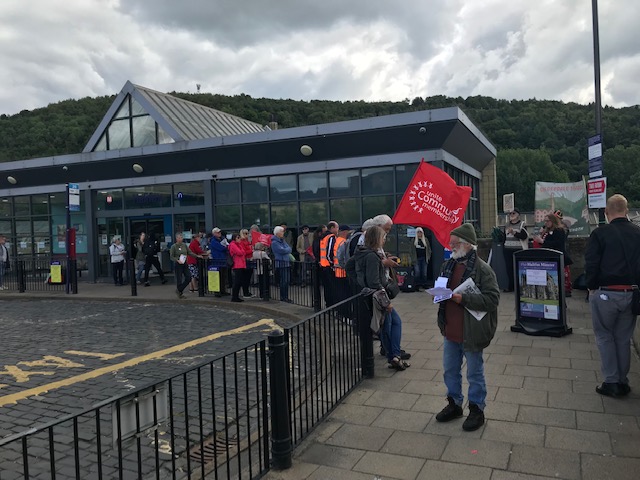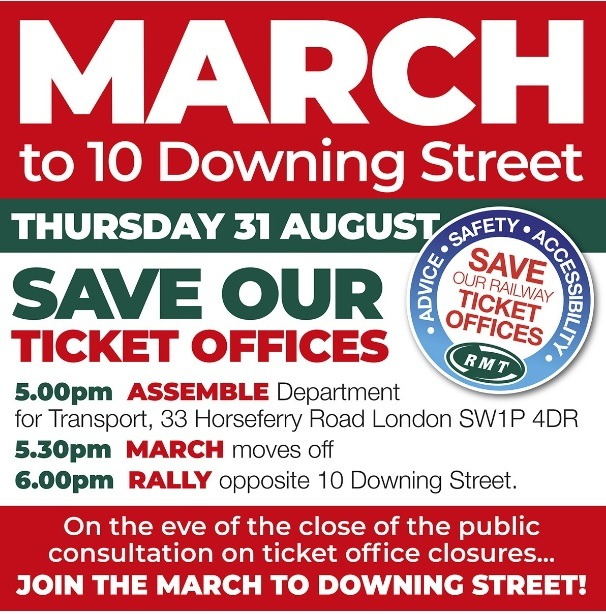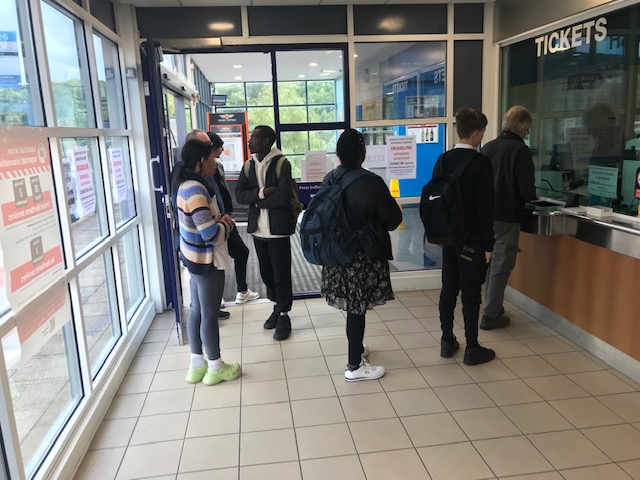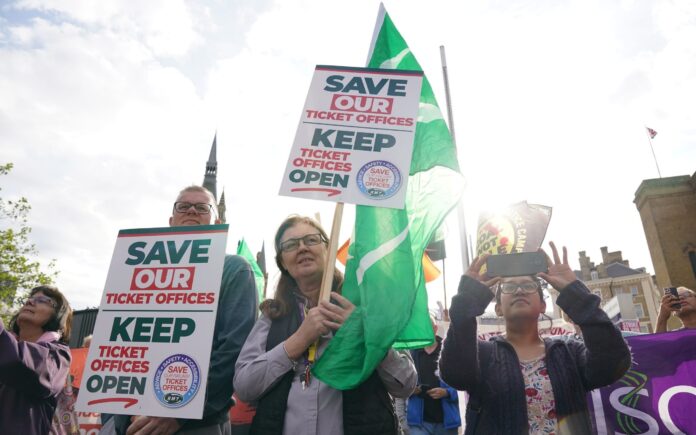When the UK government announced its “consultation” on the closure of virtually every railway ticket office in Britain, not many on the Left could have anticipated the reaction from the general public to this proposal. In the first place, the “consultation” was to last for only three weeks (July 5 -26) and its purpose was to pretend at some form of accountability but at the same time go through with the closures in any event. The Sunak government has shown a strong resolve in not going back on commitments, unlike the Johnson government, who regularly succumbed to public opinion. However, the ticket office closure plan has got a stronger reaction than almost any previous proposal. It is the government that is driving the proposals, not the train operators but in response to a legal challenge made by several Labour mayors, the public consultation was extended until the first of September.

***
In an article in the Independent (28.08.23), Simon Calder compares the situation in the UK with that of Sweden. The railway ticket offices in Sweden were closed during the covid crisis and have not reopened, but passengers are still able to buy tickets face-to-face from information desks in railway stations, as well as from other places e.g. local shops. Calder admits that the complexity of the system in the UK would make comparisons with Sweden erroneous. The proposals in the UK do not provide for flexibility, with the purchase of tickets going across to only on-line or from ticket machines. The government’s proposals are couched in the vaguest of terms. The government website talks about providing staff with “multi-skilled customer help roles… and move staff out of ticket offices onto concourses in order to provide better, face -to-face interactions.” The website claims that larger ticket offices will stay open, but the RMT (Rail Maritime and Transport) union states that the government has instructed train companies to begin closing all their ticket offices. The RMT argues that it “will restrict passenger’s access to the best value tickets, worsen passenger service, accessibility, safety and security and lead to a de-staffing of stations.” Mick Lynch, general secretary of the main rail union, the RMT, called the proposals “a savage attack on railway workers, their families and the travelling public”. He said that it will “pave the way for a massive de-staffing of the rail network”. He went on: “Travellers will be forced to rely on apps and remote mobile teams to be available to assist them rather than having trained staff on stations. This is catastrophic for elderly, disabled and vulnerable passengers trying to access the rail network.”
***
Some readers could view the opposition of the RMT as old fashioned or regressive. There is a view that new technologies could be used to improve the purchase of tickets and make travelling easier. However, having been along to stations and spoken to numerous passengers on this subject it is clear that the general public agrees with the RMT on this matter. One traveller told me that he had found it impossible to calculate the cheapest fare for commuting from Hebden Bridge to Manchester until he went to the ticket office. He told me that the member of the staff had saved him hundreds of pounds. Another traveller told me that she was unable to use the ticket machines or book on-line because she had specific learning difficulties that were not obvious and would not travel by train if she had to use either of the above methods. Another rail user said that they found the process of using machines stressful and travelling in general to be stressful and that the ticket office facility reduced their level of stress. The government claims that only 12% of tickets are bought at ticket offices, but when I surveyed my local station (Hebden Bridge), 72% of local tickets were bought at the ticket office as opposed to ticket machines. The 12% figure may be accurate, but travel passes and Oyster cards, as well as on-line and ticket machines comprise the remaining 88%. Some of these systems e.g. Oyster cards and travel passes cover multiple journeys. It is very clear at almost any station where a ticket office is available, most people use it. For example, 177.000 tickets were purchased from Halifax ticket office last year. This is particularly the case with older and disabled travellers and disability groups are coming out firmly in opposition to these proposals. Tom Marsland, policy manager at disability equality charity Scope, said: “These botched plans will make rail travel impossible, or much harder, for many disabled people… Extending the consultation doesn’t solve that. The government and rail industry need to go back to the drawing board.”
Almost 200,000 people have emailed the government in opposition to these plans and many more than that signed the petition against it. According to Transport Focus, an unprecedented 460,000 people have responded to the consultation. The RMT is planning a demonstration on August 31st against the closures and will present its petition at Downing Street.

***
Having surveyed hundreds of rail users, alongside other activists, we have found an almost one hundred percent support for the petition against ticket office closures. This support has come from all ages and types of rail user- one traveller in a smart business suit exclaiming, “Are they for real?” We have heard numerous accounts of how travellers have been helped to manage their journeys and save money by using ticket offices, rather than machines or the internet.
This proposal is another crass example of a government intend on saving money at maximum cost to the public good. The people driving these proposals probably have most of their journeys booked for them by personal assistants and travel first class. And in any case, the money saved will not be channelled to the benefit of ordinary people.
***
As a socialist I have been present at my local railway stations and shown support to the RMT on this issue. I think it is true to say that the RMT has been surprised by the level of public support they have received throughout their campaign. Even Labour MPs and some Conservative MPs have shown opposition to the plans. Labour mayors have opposed this measure as well. Even David Street, the Conservative mayor of the West Midlands, has also expressed opposition.
The mass closure of ticket offices is a clear attempt to cut spending and shed jobs. Whatever promises the government might make about support at stations, it is clear that this support is not available at stations where ticket offices have already closed. In addition, the travellers most affected by these proposals are the elderly and vulnerable. This measure is especially unpopular with older travellers, where Tory support in elections is strongest. The pressure is on. Campaigners will be out following the consultations in order to impel the government to take full account of the findings. It seems likely that the government may change tack and rather than go for mass closures it may opt to chip away at the service until it no longer exists, knowing that Labour will do little to remedy the situation when in office as has been the case with the NHS and many other issues.
Meanwhile the opposition goes on and it has been heartening to feel a sense of solidarity from people across the political spectrum. This issue is revealing to many, maybe for the first time, the incompetence of the government in managing the functions of the country for the benefit of the people it is supposed to serve.




